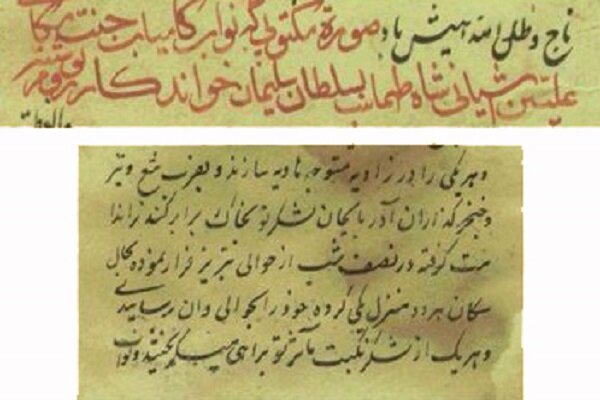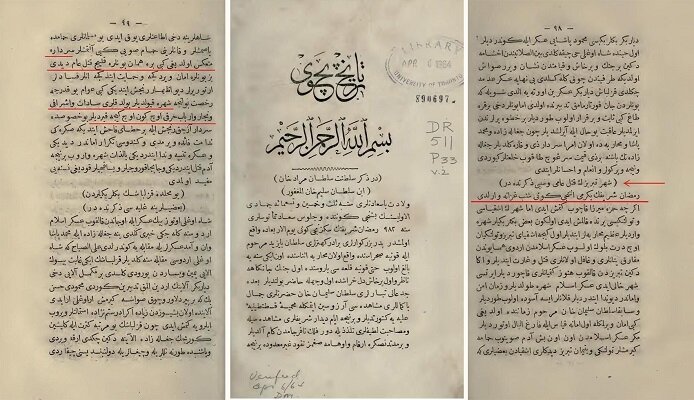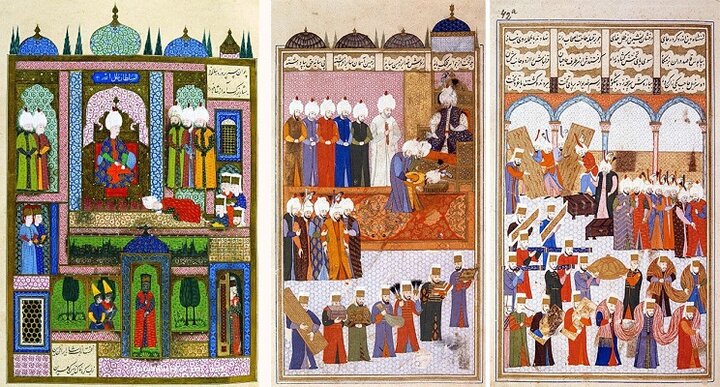They say you are unaware of the power of propaganda, they say it will take this too, just as it took Rumi... and you think it can't, no matter how much you repeat a lie and shout it louder, it won't become the truth.
According to Ashura News, quoted by Mehr News Agency, they say you are unaware of the power of propaganda, they say he repeats this until he gets his point across, they say he will win this too, just as he won Rumi… And you think it can’t be done, no matter how much you repeat a lie and shout it out loud, it won’t become right.
A person who, by chance and the course of time, has sat in the chair of the government of a country, with a not-so-long life, closes his eyes and even denies his own land and people for all the past years, deliberately does not remember that being close to a vast land and an ancient civilization brings pride and identity and the leakage of civilization into that area, he chooses not to see that what he has created for himself today as a legacy is the result of being on the path of transferring this civilization to the neighboring continent, which was thirsty for knowledge and learning knowledge and culture from the eastern lands. Whether it was when the name Ottoman came after their names or today, when they have been wearing the clothes of the Republic for about a century by tearing the strings of their past language, script and culture.
The Republic of Turkey was formed on October 29, 1923. This event occurred after the Turkish War of Independence against the Allied forces and the abolition of the monarchy on November 1, 1922. Mustafa Kemal Atatürk, who was the national hero of Turkey, founded this republic on the basis of the separation of religion and politics and sat on this chair as its first president for fifteen years.
The neighborhood of the Ottoman Turks and later the Republic of Turkey with Iran has been accompanied by conflict since the beginning of their formation, and ethnic mixing within the formed borders that have been constantly shifting is also inevitable. But what is decisive is the will of the people living in each land to call themselves. In these conflicts, they have repeatedly entered the borders of Iran and have repeatedly advanced to Tabriz, but they have never been able to hold these lands. Conquering a city is different from maintaining and administering it; and the people of this land have never considered themselves non-Iranians. Nowhere in Iran can you see the Iranian flag hanging on the windows of houses as much as in Tabriz.
The person who has called Tabriz, a fragment of Iran, the spiritual geography of the Turkic world these days, has deliberately forgotten that the people of this city have always resisted, an example of which is in the battle with Sultan Suleiman, which is mentioned in the letter of Shah Tahmasp: "And with the blows of the daggers and arrows of Azerbaijan, your army will be reduced to dust. You repented and fled from the vicinity of Tabriz in the middle of the night, becoming like dogs, you united both houses and reached the vicinity of Van, and each of the armies of your calamity fled to a different path."

The false claim of the people of Tabriz's attachment and interest in their fellow-speakers across the border is repeatedly shown in historical sources. If so many people are willing to join you, why should they resist the Turkish invasion? We see that the people's resistance to the invading army becomes so intense that it leads to massacre. An example of this is these pages from the book Tarikh Peçoy, written by the Ottoman historian Ibrahim Peçoy:
:

From the story of the Ottoman Sultan's escape from Tabriz to the writing of the Shahnameh by the Ottoman kings
The quest for identity and historical character-building have blinded the eyes of the Turkish rulers so much that they cling to anything they can; this is where the lie comes to life, but no matter how big this snowball rolls and grows, the truth will melt as soon as the sun shines. The same Rumi whose tomb in Konya is visited twice a year - on his birthday and wedding - is eaten in front of and tourists are welcomed, if you want to read his poetry you must know Persian!
The Ottoman kings used to add the suffixes of their names to Kayqubad and Kaykhosro, and they used to write poetry in Persian and read Bostan and Golestan to learn the manners and customs of life and statecraft. They could not get out from under the shadow of Ferdowsi and they created a competition for themselves in writing Shahnamehs and books to create greatness and glory for themselves from this subject! Even today, by mentioning the name of dear Tabriz, they make a claim for themselves and demand greatness.

From the story of the Ottoman Sultan's escape from Tabriz to the writing of the Shahnamehs of the Ottoman kings
A leaf from the Shahnameh of Sultan Suleiman (pictured on the left)
And two leaves from the Shahnameh of Sultan Murad (pictured on the right)
Saadi is an anthropologist and he weaves deep human themes with such elegance in the silk of similes and metaphors of his poetry that it touches our souls; And strangely, every time you read it, you think he wrote this verse today:
Truth is a well-decorated palace
The wind and desire have risen
Do you not see where the wind has risen,
Does not the eye, though man sees, see?
Now, today's story is ours. Desire and desire are two demons that ride on a person's whims and desires, and if they seize his will and authority, they clothe the body of lies in the garment of truth so that in the dust they raise, the truth cannot be seen.


Post a comment